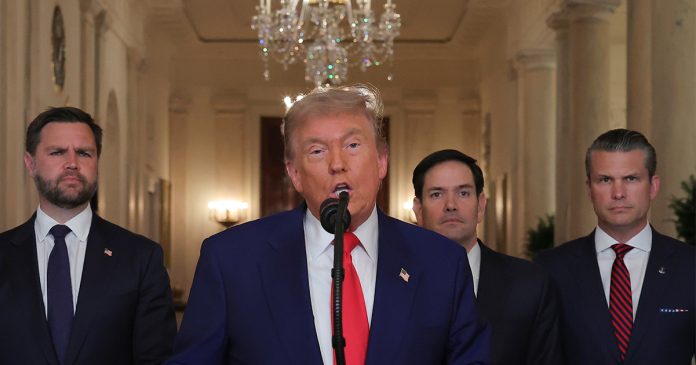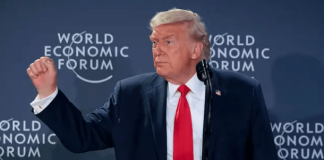A Preemptive Strike and the Looming Shadow of Retaliation
The world watched with bated breath as President Donald Trump authorized a series of unprecedented airstrikes against three Iranian nuclear facilities: Fordo, Natanz, and Isfahan. This audacious military operation, involving 125 US aircraft covering over 7,000 miles, marked a significant escalation of tensions between the US and Iran. The strikes, launched on a Saturday following days of escalating tensions between Israel and Iran, represented the first direct US military action in this ongoing conflict. Trump, in a national address, justified the strikes as necessary to dismantle Iran’s nuclear enrichment capabilities and neutralize what he termed a “nuclear threat” posed by the world’s leading state sponsor of terror.
Trump’s Bold Assertion and Social Media Triumphalism
The President didn’t shy away from taking credit for the operation. In a characteristic display of self-promotion, Trump utilized social media platforms to declare the success of the airstrikes, portraying the US-Israel cooperation as an unparalleled feat of teamwork. He further issued a stark warning to Iran, promising a response of significantly greater force should any retaliation be attempted.
The Risk of Retaliation: Iran’s Predicament
Iran now faces a critical decision. While inaction might appear the most prudent course, avoiding further US aggression, the considerable pressure to retaliate looms large. The Iranian government’s prior warnings of retribution, made days before the strikes, now place them in a difficult position. Saving face after such pronouncements could compel them to act, potentially leading to a dangerous cycle of escalation.

The Sleeper Cell Threat: A Shadow of Fear over America
Adding a chilling dimension to this already volatile situation is the reported threat of Iranian sleeper cells within the United States. News reports indicate that Iran warned Trump, through an intermediary at the G7 summit in Canada, that these dormant operatives would be activated in response to any US attack. These agents, described as spies and terrorists living seemingly ordinary lives amongst the American public, present a significant and unpredictable threat. Major cities, particularly New York, are on high alert, focusing on areas with significant Jewish and Persian communities and popular tourist spots like Times Square.
New York City’s Heightened Security Posture
New York City Mayor Eric Adams acknowledged the heightened security posture, although he emphasized that no specific, credible threats have been identified. The NYPD, however, is maintaining a vigilant presence, focusing its attention on potential targets in an effort to deter any lone-wolf attacks.

Iran’s Condemnation and Promise of Retribution
Following the airstrikes, Iran’s Foreign Minister, Seyed Abbas Araghchi, issued a strong condemnation, accusing the US of violating the UN Charter, international law, and the Nuclear Non-Proliferation Treaty (NPT). He emphatically stated that the attacks were “outrageous” and would have “everlasting consequences,” calling upon the UN to take note of this “extremely dangerous, lawless, and criminal behavior.” The international community is left to grapple with the implications of this aggressive action and the potential for a protracted and devastating conflict.
— Donald J. Trump (@realDonaldTrump) June 21, 2025
The Unfolding Crisis: A Call for Reflection
The situation remains deeply complex and fraught with uncertainty. The US’s preemptive strike and Iran’s potential retaliatory actions have created a volatile international landscape, raising concerns about the potential for further escalation and regional instability. The looming threat of sleeper cells further intensifies the tension and underscores the gravity of the situation.
What do you make of the US attacks on the Iranian nuclear sites? Let us know in the comments.




